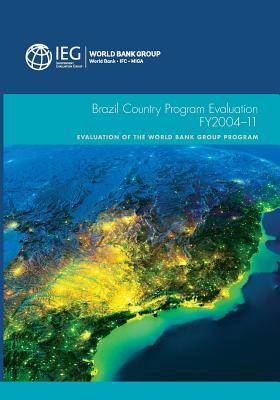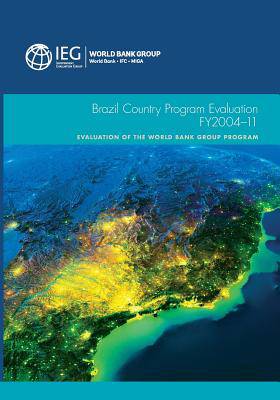
- Afhalen na 1 uur in een winkel met voorraad
- Gratis thuislevering in België vanaf € 30
- Ruim aanbod met 7 miljoen producten
- Afhalen na 1 uur in een winkel met voorraad
- Gratis thuislevering in België vanaf € 30
- Ruim aanbod met 7 miljoen producten
Zoeken
Brazil Country Program Evaluation, Fy2004-11
Evaluation of the World Bank Group Program
The World Bank
€ 36,45
+ 72 punten
Omschrijving
The World Bank Group has remained an important partner for the government of Brazil in addressing many key policy challenges. The World Bank adapted its program effectively to meet shifting country needs, which moved to subnational government support in the mid-2000s. The overall outcome of the Bank Group program is rated as moderately satisfactory, with some important variability across themes. The Bank Group made significant contributions when it served as an advisor, providing analytical input and exchanging views on relevant policy issues. Advisory support for structuring public-private partnership projects leveraged IFC's global expertise in project financing. The Bank Group's convening power provided diverse stakeholders with a platform to examine issues and trade-offs that cut across organizational boundaries. In addition, the Bank helped reduce deforestation in the Amazon through support for a major expansion of protected areas and indigenous territories, as well as for building the capacity of national and state environmental agencies. Results were less satisfactory in addressing infrastructure bottlenecks, particularly in logistics and the cost of doing business. These areas remained critical constraints to Brazil's growth and a key government concern. A question regarding the overall country strategy is whether the use of a few very large operations with opportunity cost relative to the IBRD exposure limit was appropriate. The strong demand for Bank Group financial and knowledge support in Brazil is likely to continue. To ensure efficient use of operational resources, the Bank Group must maximize its contribution per dollar loaned and per dollar of Bank Group budget resources. IEG recommends that the Bank Group make catalytic impact a major criterion in the design of its future strategy in Brazil. This means that in selecting the programs and projects to support, the emphasis should be on work that has benefits beyond the individual intervention.
Specificaties
Betrokkenen
- Auteur(s):
- Uitgeverij:
Inhoud
- Aantal bladzijden:
- 296
- Taal:
- Engels
- Reeks:
Eigenschappen
- Productcode (EAN):
- 9781464802164
- Verschijningsdatum:
- 11/11/2014
- Uitvoering:
- Paperback
- Formaat:
- Trade paperback (VS)
- Afmetingen:
- 178 mm x 254 mm
- Gewicht:
- 521 g

Alleen bij Standaard Boekhandel
+ 72 punten op je klantenkaart van Standaard Boekhandel
Beoordelingen
We publiceren alleen reviews die voldoen aan de voorwaarden voor reviews. Bekijk onze voorwaarden voor reviews.








